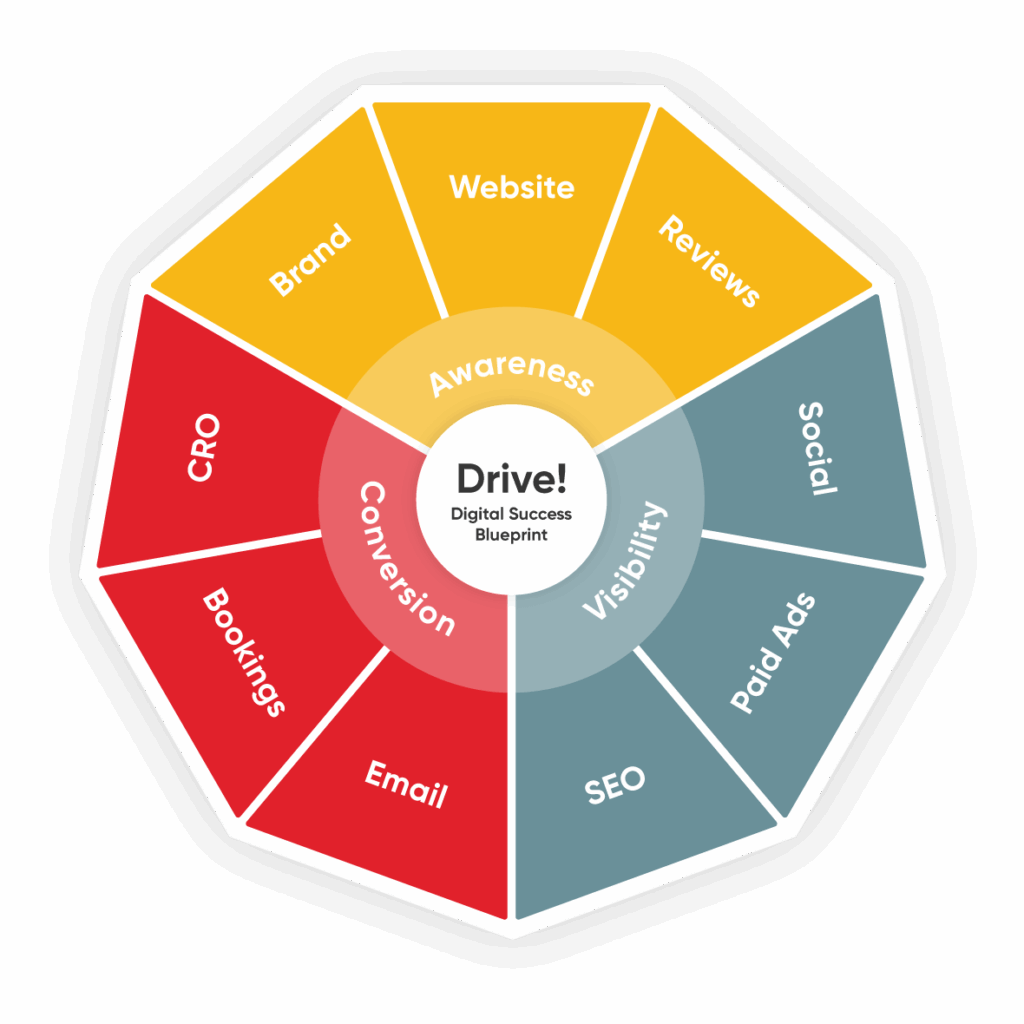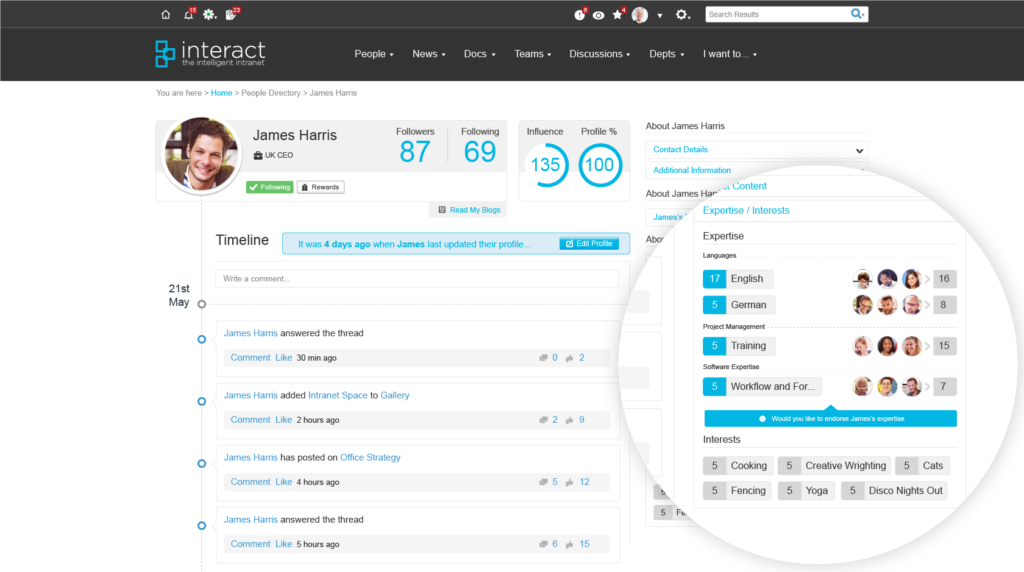When it comes to today’s fast-changing job market, staying ahead requires knowing which skills are most valued by employers. As technology advances, some abilities have become crucial for professionals. The rise of artificial intelligence and the shift towards remote and hybrid work are reshaping the workplace.
The World Economic Forum has predicted significant changes in employment over the next few years. Millions of jobs would disappear and new ones would emerge. These shifts highlight the need to adapt to new skills.
Many skills will be in high demand in 2025. The job market is evolving, and certain abilities are becoming important. In this article, we will explore these top 10 skills that are playing a key role in shaping the future of work.
Table of Contents
Marketing Skills
Here’s a detailed look at the key marketing skills for 2025:
Content Management Systems (CMS)
Knowing how to use CMS platforms is key for handling and publishing digital content smoothly. These tools simplify creating, editing, and organizing content across various websites and digital channels. Being skilled in popular CMS platforms like WordPress or Drupal helps make content management more efficient. This is important for maintaining a strong online presence.
Marketing Automation Tools
Marketing automation tools are designed to handle repetitive tasks such as email campaigns, social media posts, and ad management. Mastering these tools boosts efficiency in marketing efforts. They help in reaching the right audience at the perfect moment, saving time and resources. Familiarity with platforms like HubSpot or Marketo can greatly enhance marketing outcomes by allowing for personalized customer interactions.
Search Engine Optimization (SEO)
SEO is essential for improving how a website ranks on search engines. It involves tweaking content and websites to appear higher in search results. Strong SEO practices increase organic traffic, which leads to better engagement and higher conversion rates. Knowing SEO techniques like keyword research, on-page optimization, and link-building is vital for staying competitive in digital marketing.
Customer Relationship Management (CRM)
CRM systems are central to managing customer relationships and interactions. They store important customer data, track interactions, and aid in personalizing marketing strategies. Using CRM tools like Salesforce or Zoho allows businesses to get a deeper understanding of their customers. This results in better customer satisfaction and loyalty, which is crucial for long-term success.

Graphic Design
Graphic design skills are becoming increasingly important for creating engaging content. Whether for social media, websites, or ad campaigns, effective design helps convey messages clearly. Being familiar with design tools like Adobe Creative Suite is a valuable asset. It allows for creating visuals that draw in and keep customers attention.
There is also a growing demand for professionals with Google Ads certifications. This shows expertise in managing online ads. This is critical for driving targeted traffic and improving return on investment. Analytical skills are highly valued, as they help in understanding data, spotting trends, and making decisions that improve marketing performance.
Financial Services Sector
Here’s a look at the top skills that are in demand:
IFRS 9
IFRS 9 deals with the reporting standards for financial instruments. It’s essential for those involved in accounting and financial reporting. This knowledge helps in evaluating credit risk and managing financial assets. Being skilled in IFRS 9 makes sure that financial reports are accurate and meet regulatory requirements.
Tax Knowledge
Tax expertise is important in the financial world. Understanding tax laws and regulations is necessary for accurate reporting and compliance. Professionals with strong tax skills help businesses minimize liabilities and stay within legal boundaries. This skill is vital for improving financial performance and avoiding potential issues.
Financial Modeling (VBA)
Financial modeling with VBA is important for creating detailed financial models. These models are used to analyze data and guide decisions. Proficiency in VBA allows professionals to automate tasks, making financial forecasts more accurate. This skill is particularly valued in areas like investment banking and corporate finance, where precise data analysis is key.

Year-End/Month-End Reporting
Handling year-end and month-end reporting is a core responsibility in finance. This involves preparing and reviewing financial statements to ensure all transactions are recorded properly. Strong reporting skills are essential for closing financial periods and providing stakeholders with reliable information.
Data Management
Managing data effectively is crucial in today’s financial sector. This includes collecting, organizing, and analyzing financial data. Proper data management supports decision-making, helps in risk management, and ensures compliance with regulations. It’s a foundational skill for maintaining accurate and secure financial information.
Aside from these technical skills, employers value those who can manage stakeholders well and communicate clearly. Flexibility and the ability to work well with others are also highly regarded.
IT and Tech
In 2025, the IT and tech sectors are seeing a high demand for specialized skills. Industries like eCommerce, fintech, and financial services are at the forefront, pushing for talent in areas like cybersecurity, ERP implementation, and full-stack development. Here are some of the skills that are in demand:
Cloud Computing (AWS/Azure/GCP)
Cloud expertise is important in today’s tech landscape. Knowing platforms like AWS, Azure, and Google Cloud is vital for managing cloud infrastructure and services. These skills are essential for businesses moving their operations online or expanding their digital presence. Understanding how to deploy, manage, and optimize cloud resources can significantly impact efficiency and scalability.
ERP Systems (Dynamics/NetSuite/SAP)
Experience with ERP systems like Dynamics, NetSuite, and SAP is highly valuable. These platforms are central to managing business operations. Skilled professionals can help businesses streamline processes, from finance to supply chain management. Implementing and maintaining ERP systems requires a deep understanding of how they integrate with different business functions.

Programming (Python/SQL)
Proficiency in programming languages like Python and SQL is important. Python is widely used for data analysis, automation, and software development. SQL is essential for managing and querying databases. Together, these skills are critical for building and maintaining strong applications and analyzing large datasets. They are foundational skills for many roles in IT, from data science to software engineering.
Front-End Development (React JS/Node JS/Angular JS)
Front-end development skills, especially in React JS, Node JS, and Angular JS, are in high demand. These technologies are used to create responsive and dynamic web applications. Professionals skilled in these areas can design user-friendly interfaces that enhance the user experience. This is key for companies looking to build or improve their online platforms.
.NET Development
.NET development remains a strong skill in the tech sector. It’s used for building a wide range of applications, from web to mobile to desktop. Proficiency in .NET allows developers to create scalable and secure applications. This skill is particularly valued in enterprise environments, where complex software solutions are often required.
Beyond technical expertise, IT professionals with strong communication and relationship management skills are in high demand. Companies are seeking candidates who can manage stakeholders, lead teams, and communicate technical concepts to non-technical audiences. These interpersonal skills are just as important as technical know-how, especially in collaborative environments.
Administrative/HR
The demand for skilled professionals in administrative, HR, and office support roles is growing rapidly. Companies are placing a strong focus on talent management. They need individuals with a blend of technical and interpersonal abilities. These are some of the top skills that are essential in this field:
Human Resources Information System (HRIS)
HRIS experience is important. These systems handle employee data and streamline HR tasks. They help ensure accurate reporting and efficient processes. Mastery of HRIS enhances productivity in areas like recruitment, payroll, and employee management. This skill is particularly valuable for handling large teams or complex HR needs.
Compensation and Benefits Management
Handling compensation and benefits is a crucial part of HR duties. It involves creating and maintaining salary structures, bonuses, and benefits that attract and keep talent. Knowledge in this area is key to ensuring employees feel valued and fairly compensated. It’s essential for building a motivated and satisfied workforce.
Budgeting
Budgeting is another important skill for those in administrative and HR roles. It involves careful planning, monitoring expenses, and making sure resources are used wisely. Strong budgeting skills help organizations maintain financial stability and make smart investments in human capital and office resources.

Microsoft 365
Proficiency in Microsoft 365 is important for administrative tasks. Tools like Excel, Word, and PowerPoint are commonly used for creating documents, managing data, and preparing presentations. Being skilled in Microsoft 365 allows professionals to handle daily tasks and collaborate in modern office settings.
Data Analytics
Data analytics is becoming important in HR and administrative roles. It involves analyzing data to make informed decisions about workforce planning, employee performance, and recruitment strategies. Understanding data analytics helps identify trends, measure outcomes, and provide insights that support business goals. This skill is critical for anyone involved in people management and office support.
In addition to these technical skills, there’s a growing focus on diversity, equity, and inclusion (DEI) and environmental, social, and governance (ESG) practices. Companies are striving to create more inclusive and sustainable workplaces.
Project management and stakeholder management skills are also highly valued. Professionals who can manage projects and communicate clearly with different teams are in high demand. These abilities ensure that tasks are completed on time and that everyone involved stays informed throughout the process.
Legal
As firms aim to strengthen their legal departments or start new in-house teams, certain abilities stand out.
Commercial Contract Negotiation and Review
Legal professionals need to excel in negotiating and reviewing commercial contracts. This involves understanding and crafting agreements that protect business interests. Skill in this area ensures that contracts are fair, clear, and legally sound, helping to avoid disputes and achieve favorable terms.
Data Privacy Law
With growing concerns about data security, expertise in data privacy law is essential. Legal professionals must navigate regulations such as GDPR and CCPA. They provide guidance on handling customer data and ensure compliance with legal standards. This skill is important for maintaining trust and avoiding legal issues related to data breaches.

Commercial Real Estate
Knowledge of commercial real estate law is highly valued. This includes managing leases, property sales, and purchases. Legal professionals help companies deal with the complexities of real estate transactions. Their expertise ensures that deals are legally compliant and beneficial.
Construction and Engineering Contracts
Skills in managing construction and engineering contracts are also important. These contracts are often detailed and involve multiple parties. Legal professionals need to make sure that the terms are clear and fair. They help avoid conflicts and ensure that projects run smoothly from beginning to end.
SaaS Agreements
As businesses use software-as-a-service (SaaS), understanding SaaS agreements becomes critical. Legal professionals in this area draft and review contracts for software services. They ensure that agreements are comprehensive and protect both parties involved.
Besides these specialized skills, there’s a strong demand for legal professionals with experience in cyber security, fintech, and cryptocurrency. These fields are rapidly evolving, making experts in these areas particularly valuable.
Strong interpersonal skills are also important. Legal professionals should be adept at managing relationships and projects. They need to anticipate future legal challenges and opportunities. These abilities help in building effective legal teams and supporting business goals.
Adapting to these in-demand skills aligns with current industry trends and also prepares professionals for future challenges and opportunities. Learning these skills will be key to surviving the dynamic job market and achieving success in 2025 and beyond. Explore training opportunities, gain relevant certifications, and build expertise in high-demand fields. Start today and position yourself for success in the competitive job landscape. Take the next step towards achieving your professional goals! Visit our website for more information.
FAQs
- How can professionals identify the right skills to develop for their industry?
Researching industry trends, consulting with mentors, and following job market reports can help professionals pinpoint the most valuable skills. It’s also helpful to assess current job descriptions and requirements within the desired field.
- Are certifications necessary for demonstrating proficiency in these skills?
While certifications aren’t always required, they can be beneficial. Certifications can validate expertise and show a commitment to ongoing learning. Many employers value them, especially in fields like IT, finance, and marketing.
- How can someone balance learning new skills while managing a full-time job?
Balancing work and learning can be challenging, but setting aside regular time for online courses, attending workshops, or engaging in self-study can help. Prioritizing skills that align with current job responsibilities can also make it easier to integrate learning into daily tasks.
- Is it important to specialize in one area or develop a broad skill set?
This depends on the career goals and industry. In some fields, specialization can lead to higher expertise and better job opportunities. However, having a broad skill set can make professionals more adaptable and versatile in a rapidly changing job market.
- What are the risks of not keeping up with these in-demand skills?
Not staying updated can result in becoming less competitive in the job market, missing out on career advancement opportunities, and potentially facing job insecurity as industries evolve and require new expertise.



















